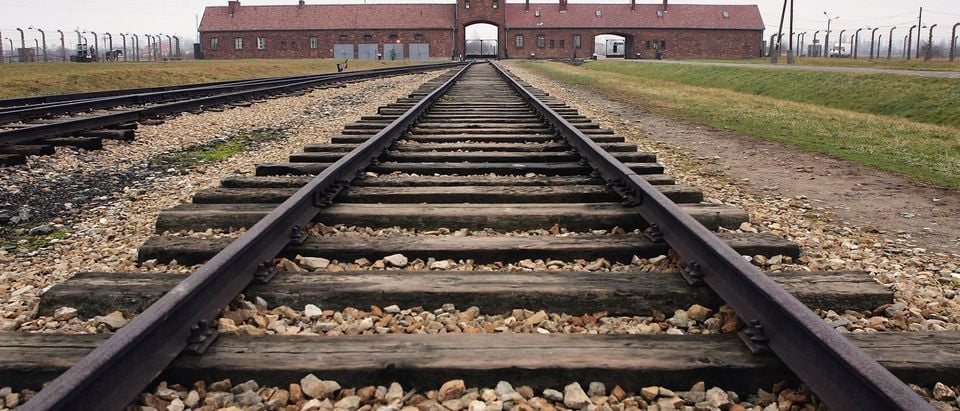Despite all of the commemorations on Sunday, Auschwitz’s final liberation didn’t occur on Jan. 27, 1945. True, the Soviet Red Army did free 7,000 Jews who were still alive in the Nazi Auschwitz-Birkenau concentration camp, but they didn’t shut down the camp. They merely replaced one set of prisoners with another.
Most historical accounts leave a blank spot between the Soviet arrival in January 1945 and the creation of the Auschwitz-Birkenau State Museum on July 2, 1947. Certainly, the Russians prefer to be viewed only as liberators.
It is a sore point for many Poles that the United Nations set Jan. 27 as International Holocaust Remembrance Day to memorialize the end of the Nazi concentration camps. Auschwitz, the largest concentration camp, continued to operate with Polish prisoners until Spring 1946. The Russians and their Polish communist allies hid the operation and destroyed many records, so the exact end date is unknown. The estimated number of Poles kept in the camp vary, but hover around 35,000.
These prisoners represented the leaders of what remained of Polish society: academics, businessmen, and politicians. The Soviets wanted Poland to be a country of docile workers, not free-thinkers. The victims were similar to those of the Chinese cultural revolution.
While only 144 Poles died in the Soviet Auschwitz, Spring 1946 didn’t bring an end to the suffering. The Soviets moved the vast bulk of these Polish prisoners to the Siberian Gulags, where they presumably perished.
None of this compares to the over one million lives that the Nazis claimed at Auschwitz.
But it’s astonishing that English language sources ignore this history. As Polish history sites note: “The next two years of Auschwitz [1945 and 1946] were erased from history.”
The Russians could also have liberated Auschwitz much earlier than they did. During the Warsaw uprising in the fall of 1944, the Soviets waited for months on the eastern shore of the Vistula river while the Germans leveled the city and killed upwards of 200,000 civilians. The Soviets believed that such annihilation would make it easier for them to control Poland after the war. But this also gave the Nazis more time to gas Jews and others at Auschwitz.
Unfortunately, all too typically, American media outlets such as NPR referred to Sunday as the “74th anniversary of [Auschwitz’s] liberation by Soviet forces.”
I only became aware of this chapter of history when I traveled to Warsaw in January 2017, to speak before members of the Polish Parliament. My trip coincided with the Jan. 27 anniversary, so people were talking about the event.
The Russians don’t deserve the overwhelmingly positive news coverage that they received on Sunday. The American media has had plenty of black eyes recently, and its coverage of International Holocaust Remembrance Day is yet another.
John R. Lott is the president of the Crime Prevention Research Center and the author most recently of “The War on Guns.”
The views and opinions expressed in this commentary are those of the author and do not reflect the official position of The Daily Caller



